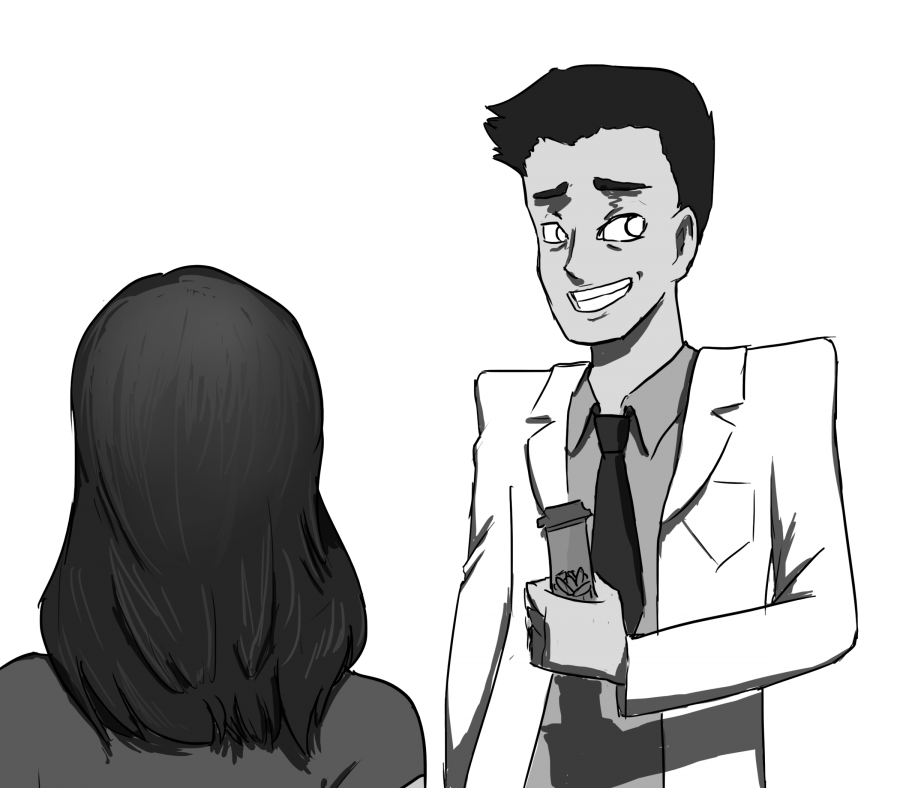A man with dark brown hair pushed to the side dawned in a bright white lab coat with a stethoscope hanging out of his right pocket. He hands his patient a piece of paper with instructions regarding the proper dosage of her medication that she is to take for the next two weeks. He puts it in her hand with a reassuring smile, and she accepts it with satisfaction. What she doesn’t know is that he is unsure as to if the medication legitimately works or not.
The common misconception in the healthcare world is that doctors are knowledgeable on every topic regarding patient care because they have completed the qualifications to become a physician—a feat that requires four years of intense competition in undergraduate school, four years of medical school and three years of residency. However, there are many things that medical schools all over the country and all over the world leave out of their curriculum.
According to The Washington Post, our country’s medical education doesn’t focus on wellness or chronic disease management. In turn, many of these diseases are left untreated until they become emergency cases. Unfortunately, for many patients, this late care is a result of an inability to prevent disabilities or even death.
Trinity Prep alum, Andy Nutting, who is currently studying Osteopathic Medicine at Lincoln Memorial University sheds some light on what doctors have trouble getting across to their patients.
“Many physicians lack the ability to explain medicine and to read their patient’s needs,” Nutting said. “You cannot explain a lot of this science by using science terms, so patients get overwhelmed, confused and can’t keep track of everything the physician is telling them they need to do when they go home.”
A secret some people do not realize is that antibiotics are not always effective in curing illnesses.
“More and more bacteria are becoming resistant to our methods because so many physicians pass out antibiotics like candy for viral infections where it won’t even be effective, [and] many physicians do this to satisfy the patient,” Nutting said.
The same type of situation arises from narcotics and pain medication. If physicians fail to relieve their patients’ pain, they typically don’t receive good ratings and earn no compensation. However, the consequence of prescribing narcotics is that the tendency to be addicted is very high and can be dangerous for the patient.
The United States medical education system focuses on many areas of health and science, but one that has noticeably been under the radar is mental health.
“Medical schools do not focus enough on mental health,” Nutting said. “We are in a mental health crisis in this country and more and more medical students and physicians are committing suicide every year.”
Apart from covering all bases of health aspects, medical schools don’t typically put enough of an emphasis on teaching their students how to deliver bad news.
“Medical education was notoriously as devoid of information about miracles and comas as it was of eye contact and the art of using plain English,” surgeon Marty Makary said.
He goes on to explain how there was one class in his med school that taught students how to deliver the news of a death to a family, as well as dealing with a patient’s or their loved one’s behavior issues. However, the problem was that this class was sandwiched in between rigorous science classes that demanded a lot from the students with their frequent exams. The students primarily focused on these demanding science classes since the notion of optimal grades being equivalent to success is so prevalent in education.
“I sacrifice a lot of things to study,” Nutting said. “I really need to get snow tires for my car, but I just don’t have the time to drive somewhere and do this because I will lose hours of study time that are just too valuable.”
Spending too much time on core science classes, in turn, results in a neglect to prioritize the class that teaches real life people skills that is essential to many fields of medicine.
“I feel that the students on the premed track should also be required to take classes like ‘health law and ethics’ because it’s important to be aware of the laws and ethics within medicine,” said University of Central Florida undergraduate and Florida Hospital Emergency Room scribe Ann Saengchote.
The med school culture is fostered by tests and competition for residency. It rewards good grades, not self-improvement or social skills.
“The process in residencies can be abusive,” Nutting said. “Some areas force the students to stay awake for no reason and purposefully sleep deprive them.”
Family practitioner Dr. Yan Yu said that he began to question whether the assignments that he had to complete during his years in med school actually served a purpose, and if their professors legitimately cared about their students’ growth and development. The unfortunate truth: not always.
Every morning, students would hurriedly copy patient information into each patient’s chart, which is a mindless task that doesn’t contribute to genuine learning or patient care. The senior physicians don’t pay any attention to these notes when making medical decisions. Essentially, the students are wasting their own time when they could use those valuable minutes to be learning skills that will personally benefit themselves as well as their future patients.
“You have to be able to effectively communicate with your patient,” Saengchote said. “That’s why medical schools have interviews. They’ve already reviewed your application and consider you a possible student at their school. The only thing missing is whether or not you have good communication skills.”
Physicians are responsible for assuring their patients remain in good health. However, how much doctors actually know about medical topics and ethics remains a pressing speculation.





